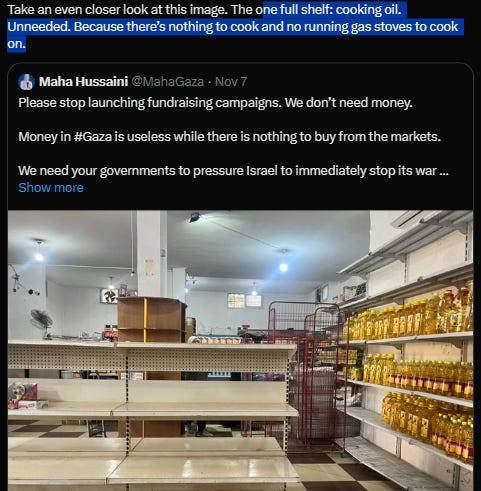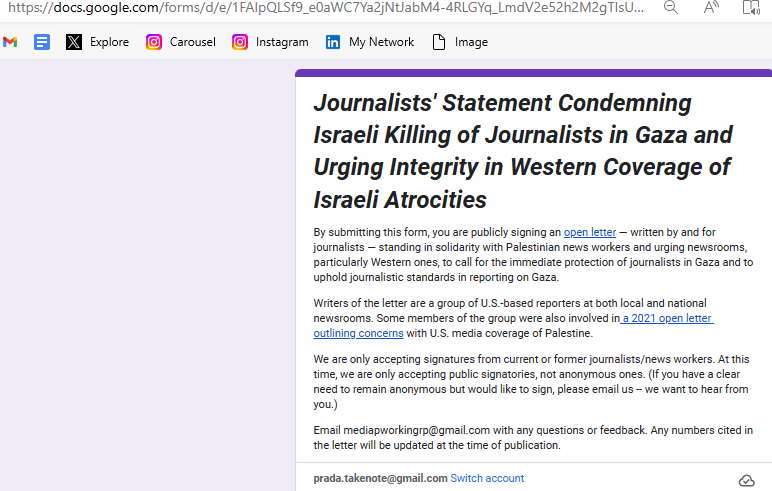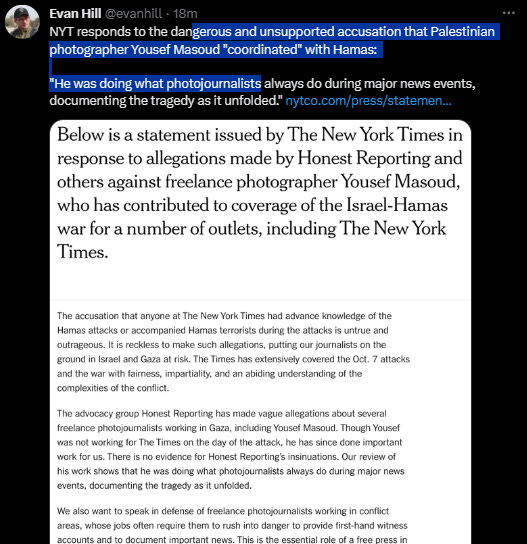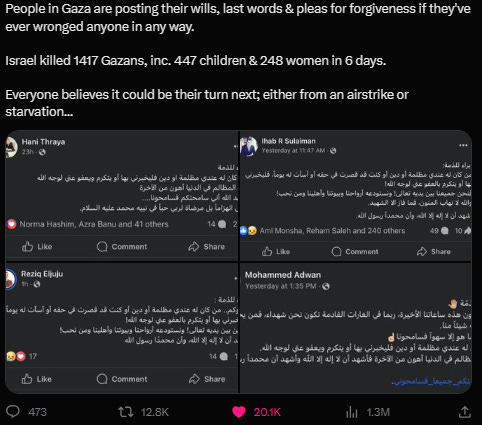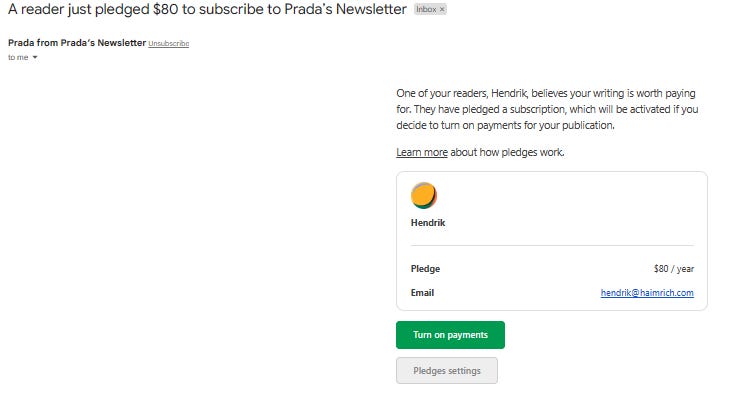DC 7.49am / Gaza and Tel Aviv 2.49pm
A new brand of far-right religious nationalism in Israel is seeking to refine the country’s ethnocentric basis, increasing its policing of the boundaries of Israeli Jewish identity in an attempt to shore up support for Israel’s anti-Arab policies. A parallel movement is unfolding in Israel’s chief benefactor, the United States, as the U.S. Zionist movement seeks to marginalize the increasing number of American Jews who are critical of Israeli apartheid in favor of Christian Zionists for whom the existence of a Jewish state in the Levant is part of their millenarian agenda.
In both cases, their targets are liberal Jews whose disapproval of genocidal violence against Palestinians is considered a threat to Washington’s most important client state in the Middle East — a state that, if it didn’t exist, as U.S. President Joe Biden once quipped during his senatorial days, the U.S. would “have to invent.”
After winning a sweeping victory in the November 2022 Knesset elections, the leaders of several far-right Israeli parties began laying out their plans for changing some of the most fundamental laws concerning Israeli citizenship.
Otzma Yehudit (“Jewish Power” in Hebrew), led by Itamar Ben-Gvir, and the Religious Zionist Party, led by Bezalel Smotrich, called for removing Clause 4a, better known as the Grandfather Clause, from the Law of Return. The Law of Return lays out the conditions under which a Jew can qualify for Israeli citizenship.
Clause 4a, a 1970 addition, allows those with just one Jewish grandparent to qualify, as well as the non-Jewish spouses of Jews, their children and their grandchildren. The clause allowed millions of Jews to come to Israel from the former U.S.S.R., where anti-Jewish bigotry was illegal but Jewish identity and religion were discouraged, as well as from other Eastern European countries where Jews were also highly assimilated.
The result of removing that clause would be that millions of Eastern European Jews in Israel would lose their citizenship as Jews, and non-Orthodox Jewish converts who sought to emigrate to Israel would no longer be able to do so.
The move has been highly criticized, especially by Diaspora Jews who live outside of Israel. Rabbi Rick Jacobs, the president of the Union for Reform Judaism, which represents 1.5 million Jews and nearly 900 congregations across North America, told the Jewish Chronicle that doing so “would undermine the very fabric of the Zionist enterprise and would be a deliberate harming of the sense of the Jewish people all over the world who know there’s one Jewish homeland and that the Law of Return has been a sacred commitment the state of Israel has made with world Jewry.”
Since 2013, the Israeli Supreme Court has held that there is no such nationality as Israeli, since its existence would destroy the country’s foundational principle of being a state for the Jewish people. As a result, its identity sits on a “Jewish nationality,” of which the above-mentioned Jews would be deprived.
However, there is a deeper purpose behind restricting emigration to Israel by non-Orthodox Jews and non-practicing Jews: maintaining unity in the national constituency. For if there were sufficient dissent among those recognized as Jews concerning how the Jewish State treats Palestinians, for example, or flouts international law and United Nations resolutions, it could pose a danger to the very concept of a Jewish-only state.
In Israel, Reform and Conservative or Masorti Jews are a small minority, with just 2 percent identifying as Masorti and 3 percent as Reform. However, 50 percent identify with Orthodox Judaism, which is generally the most politically conservative denomination.
Everyday I try to monitored at least 7 Gazans people/journo. Until 9 / 10am Gaza, only Mohamed Saifa already posted on Tuesday [local time]. 6 others, like Plestia Alaqad, Belal Khaled [his photo was in The Solomon R. Guggenheim Museum 50 hours ago about destitude Gazans]. Motaz Azaiza, Hind Khoudary, Bisan Owda, and Hatem Hany Rawagh not yet posted anything. HATEM even already 42 hours without news about him. Hatem is Plestia’s teammate.
The situation in the United States is far different. The U.S. is both Israel’s greatest benefactor and the home to either more or roughly the same number of Jews as Israel, depending on how one counts things. Here, Reform Judaism is the largest denomination, with 35 percent of American Jews identifying themselves with it; just 10 percent identify as Orthodox, while 18 percent identify as Conservative (as Masorti Jews call themselves in the U.S.). Another 30 percent describe themselves as “non-denominational.”
Reform Judaism arose in 19th century Germany as a Jewish response to socio-theological debates sparked by the European Enlightenment, which saw Protestant Christian denominations begin to liberalize their doctrines and worship practices. Reform Jews followed suit, relaxing their interpretations and enforcements of halakha, or Jewish law.
Orthodox Judaism, by contrast, rejected most of these Enlightenment trends. Reform found its most fertile soil in the United States, where along with the later Conservative movement it helped form the core of the liberal Jewish community. Today, roughly 80 percent of Reform Jews vote Democratic and identify themselves as liberals, as do 70 percent of American Jews overall.
A key value of these tendencies is the Hebrew phrase tikkun olam, or “repairing the world,” which liberal Jews interpret as a call to fight for social justice. One Conservative rabbi, Abraham Joshua Heschel, was a key supporter of Dr. Martin Luther King Jr. and said that when he marched for Black civil rights he “prayed with his feet.”
These values have also led to a steady decrease in support for Israel among American Jews. A 2021 poll of Jewish voters found that 34 percent agreed that “Israel’s treatment of Palestinians is similar to racism in the United States;” 25 percent agreed that “Israel is an apartheid state;” and 22 percent agreed that “Israel is committing genocide against the Palestinians.” Roughly 9 percent agreed that “Israel doesn’t have a right to exist.”
That same poll found those numbers to be higher among younger Jews, with 20 percent disapproving of Israel’s existence as a Jewish-only state and one-third saying Israel is both an apartheid state and is committing genocide against Palestinians.
As a consequence, the Israeli government has been putting more pressure on American Zionists, both Jewish and Christian, to raise their own voices and suppress this dissent, which has only grown louder since the November elections and the elevation of figures like Ben-Gvir and Smotrich, and the return of Benjamin Netanyahu to power.
A recent example is found in a December 2022 interview of Josh Hammer, an opinion editor for Newsweek magazine, with Fox News’ immensely influential Tucker Carlson, who (before his abrupt dismissal) regularly peddled antisemitic conspiracies and platformed white supremacists on his talk show.
A day prior, the Anti-Defamation League, or ADL — an NGO that claims to report on and debunk antisemitism, and which is deeply Zionist — criticized the far-right victory in Israel’s recent elections. The group said “including these far-right individuals and parties in an Israeli government would run counter to Israel’s founding principles.”
In response, Hammer attacked ADL CEO Jonathan Greenblatt, suggesting his proximity to Democrats such as Rev. Al Sharpton had caused him to turn against Israel.
“Jonathan Greenblatt is a partisan, Obama-administration Democratic alum. If he had a morsel of dignity or self-respect he would resign tomorrow,” Hammer fumed to Carlson. “And he does not — this is crucial, Tucker — Jonathan Greenblatt does not speak for the Jewish people. He speaks for liberal, Reform ‘tikkun olam’ Jews, he does not speak for proud Jews, for Zionist Jews, he does not speak for most Jews in America at this point.”
Hammer has also attacked liberal Jewish activists who held an event during Yom Kippur, during which Jews typically fast if they’re able, in which they sought to build an inclusive space for Jews who are unable to fast for health or other reasons. The opinion editor called them “kapos,” comparing the activists to those Jews who collaborated with the Nazis to police the concentration camps. It is among the worst accusations a Jew can make of another Jew.
However, Hammer is far from alone in voicing such ideas. Daily Wire founder and former Breitbart editor Ben Shapiro said as early as 2011 that “The Jewish people has always been plagued by bad Jews, who undermine it from within. In America, those bad Jews largely vote Democrat.”
Shapiro opened the same line of attack as Hammer when speaking at the CPAC-Israel conference in Tel Aviv last year, suggesting that Reform Jews are not really Jews at all.
“It’s an unfortunate reality of life in the United States that Reform Judaism, as a branch, does not see Jewish identity in a serious way, as central. It’s a very simple rubric for me: If as a Jew, your values are more in line with same-sex marriage, transgenderism, and abortion than they are with, for example, the safety and security of the State of Israel, I have serious questions about how you think about yourself as a Jew,” Shapiro said.
There is a deep and bitter irony that Israel, ostensibly created as a sanctuary for Jews from centuries of persecution experienced largely at the hands of Christians, should now seek to marginalize so many dissident Jews and elevate Christian voices of support. And yet that is exactly what is happening.
In 2021, the former Israeli ambassador to the United States, Ron Dermer, told conference goers in Israel that the Israeli government should prioritize the “passionate and unequivocal” support of evangelical Christians over that of American Jews, who he said are “disproportionately among our critics.”
“People have to understand that the backbone of Israel’s support in the United States is the evangelical Christians. It’s true because of numbers and also because of their passionate and unequivocal support for Israel,” Dermer explained.
Indeed, a Pew poll last May found a whopping 86 percent of white evangelical Christians said they felt warmly toward Israelis — more than any other Christian group. By comparison, 58 percent of Black Protestant Christians said they felt warmly toward the Israelis — still an easy majority.
However, when that category is broken down by age group (as a poll commissioned by the University of North Carolina at Pembroke did a year prior) it becomes easy to see that this is most true of older evangelicals. That poll found that just 33.6 percent of young evangelicals between the ages of 18 and 29 support Israel — half of what another poll by the University of Maryland found just three years earlier, which surveyed a slightly different age group of 18-34. Comparing the two polls (as much as they can be compared) also shows a marked increase in support for Palestinians, which snowballed from 9 percent in 2015 to 18 percent in 2021.
The May 2022 Pew poll also found that 70 percent of white evangelicals believe G-d gave the land of Israel to the Jewish people. In 2020, another Pew survey asked an almost identical question of Jews, and just 32 percent said they believed G-d gave the land that is now Israel to the Jewish people.
In order to understand why far more Christians than Jews support Israel and believe it was Biblical destiny for Israel to exist, we must look back at the history of Zionism and the 19th century movement to found a nation-state for Jews in the Levant.
The Zionist movement arose in a haphazard way in Eastern Europe in the late 19th century among Jews who saw what they called “auto-emancipation” as the only way to escape the antisemitic pogroms and persecutions they faced, especially in the Russian Empire. While several thousand Jews emigrated to the area then known as Ottoman Syria, few had visions of a national state for Jews or a “Jewish State,” which many did not see as the same thing. Only with the publication of “Der Judenstaat” (“The Jewish State”) by Austro-Hungarian journalist Theodore Herzl in 1896, and the foundation of the World Zionist Organization, or WZO, the following year, did the movement acquire a national basis.
However, Zionists were never the majority among Eastern European Jews. They faced stiff competition from the Bundists, who sought cultural autonomy for Jewish communities, and several varieties of communists and anarchists, many of whom sought liberation for Jews in the abolition of capitalism and class society and the creation of Jewish autonomous regions in either Crimea or later in Birobidzhan in the Soviet Far East. Those groups saw Zionism as a mixture of escapism and utopianism, and many were secular.
In addition, many devoutly religious Orthodox Jews also opposed Zionism, finding textual arguments in the Talmud against Jews returning to the land where the ancient Hebrew kingdoms had once ruled before being annihilated by the Roman Empire.
The Zionist movement found its national supporters in the United Kingdom and the United States, where it meshed with Christian millenarian belief and an already-existing cultural obsession with the region. According to the millenarianism widespread among Protestants of the time, the gathering of all the world’s Jews in Israel would be a key factor in bringing about the End of Days and the Second Coming of Christ. In this scenario, of course, the Jews all wind up converting to Christianity, and those who refuse get eternal damnation.
The idea of large numbers of European Jews settling in the Middle East was also very attractive to those with imperial ambitions there, and the WZO had few scruples about making itself attractive to imperialists.
Sympathy in London was such that by 1917, when British forces and their Arab allies were seizing large swaths of the Ottoman Empire, U.K. Home Secretary Arthur Balfour gave Zionism the “favor” of His Majesty’s Government.
In the United States, Christian-based favor for creating a Jewish state in Palestine goes back to John Adams, the country’s second president, and similarly dovetailed with an imperial interest in the region. Adams and other figures, such as New York University Biblical scholar George Bush — an ancestor of the two presidents by the same name — believed Jews relocating to Palestine was their first step toward Christian conversion, which Bush said would “elevate” the Jews “to a rank of honorable repute among the nations of the earth.”
This energy later became a powerful lobbying force during and after World War II, as it was spun as a humanitarian gesture after news of the horrors of the Holocaust became widespread. In the second half of the 20th century, support for Israel became a staple of right-wing evangelical preachers and televangelists.
Since its creation, Israel has been a key asset to U.S., British, and French foreign policies, and enjoyed support from all three nations in exchange for serving as their willing instrument against Arab nations.
In Israel and the United States alike, far-right religious nationalism is fighting a rearguard action against trends in the Jewish community toward prioritizing social justice and questioning the discriminatory and colonial policies that Israel claims to be carrying out in their name.
Extremist, Jewish Supremacist attitudes among the supporters of Israeli apartheid have found common cause with right-wing evangelical Christians, despite the latter’s powerful antisemitism, in an attempt to silence “insurgent” Jewish critics of Israel. This they aim to accomplish by redrawing the boundaries of Jewishness, and in so doing, also redrawing the boundaries of conversation around the existence of Israel as a Jewish-only state.
To stand against these twin trends is to stand with the Palestinian people in their struggle for freedom and self-determination, but it is also to stand with liberal and progressive movements here in the United States that are under attack because their members happen to be Jews and their values also happen to disapprove of apartheid. It is to stand with Jews who refuse to let our religion of love, community, study and awareness of the oneness of creation be defined as one of bigotry, colonialism, sectarianism and violence.
I know a lot of high-ranking media, such as New York Times, Guardian, Anadolu, BILD, Spiegel, Financial Times, Strait Times, Washington Post etc subscribed my substack. Plestia ‘Bosbos’ Alaqad ready to be your Stringer inside Gaza under bombing by Israel. Plestiaa2011@gmail.com
Toddler with Plestia, before war, living in Northern Gaza and they evacuated to Southern Gaza. Since Friday, Oct 13, when Israel announced to every Gazans from northern move to southern, more than 5,000 killed in southern, not counting barbaric bombing in northern Gaza. Northern Gaza is being depopulated, while even residents in the south are ordered to evacuate as the israelis implement their ethnic cleansing. Refugee literally fulfilled Israel warning, and still killed with barbaric bombing by Israel. Documentation by Plestia Alaqad
result of QR code = link
Even, Evan Hill is Washington Post journo, not NYT / New York Times
————————————————
Forgive me for pointing out that my ability to provide this coverage is entirely dependent on your kind voluntary subscriptions which keep this newsletter-substack going. This post is free for anybody to reproduce or republish, including in translation. You are still very welcome to read without subscribing.
Unlike adversaries including the Integrity Initiative, The Atlantic, Visegrad, Bellingcat, the Atlantic Council and hundreds of other warmongering propaganda operations, this newsleter-substack has no source of state, corporate or institutional finance whatsoever. It runs entirely on voluntary subscriptions from its readers – many of whom do not necessarily agree with every article, but welcome the alternative voice, insider information and debate.
========END————
Thank you, as always, for reading. If you have anything like a spark file, or master thought list (spark file sounds so much cooler), let me know how you use it in the comments below. Thank you so much for letting me vent! If you enjoyed this article, you can give pledge to me (click PLEDGE button) or simply share this article with a friend. It helps me more than you realise.
If you enjoyed this post, please share it.
______________
Professor Hendrik, Professor Eric, and another person, Prof David A. Andelman, former Bureau Chief NYTimes recommended my substack, also some Chief Technology of Financial Times (FT) recommended my substack, not only subscribe. I'd be happy to get more & more PLEDGE and recommendations for better crafted writing (via Bank Central Asia (with my full-name ADI MULIA PRADANA, clearing code 0140119, account number 0201558866 or via STRIPE. For me, prefer Bank Central Asia).
If a friend sent this to you, you could subscribe here 👇. All content is free, and paid subscriptions are voluntary.
——————————————————————————————————
-prada- Adi Mulia Pradana is a Helper. Former adviser (President Indonesia) Jokowi for mapping 2-times election. I used to get paid to catch all these blunders—now I do it for free. Trying to work out what's going on, what happens next. Now figure out and or prevent catastrophic of everything.
===





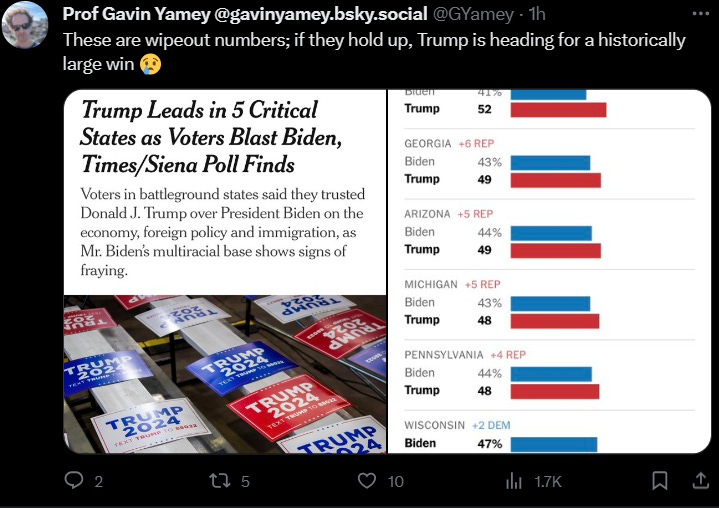




![Eugenics by Israel, Jealous Israel [Got Help by US]](https://substackcdn.com/image/fetch/w_1300,h_650,c_fill,f_auto,q_auto:good,fl_progressive:steep,g_auto/https%3A%2F%2Fsubstack-post-media.s3.amazonaws.com%2Fpublic%2Fimages%2F656aa426-3a2b-4373-bad1-e2a694c5bbc9_387x473.png)






